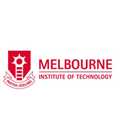Bachelor of Networking – Major in Software Engineering (Melbourne)
Bachelor of Networking – Major in Software Engineering (Melbourne)
Be part of the next big thing Networks and software innovations are transforming the way we do business. Position yourself at the heart of exciting, evolving industries, with a Bachelor of Networking – Major in Software Engineering. You’ll graduate with a toolkit that allows you to solve computing and IT…
Categories
COURSE DESCRIPTION
Be part of the next big thing
Networks and software innovations are transforming the way we do business. Position yourself at the heart of exciting, evolving industries, with a Bachelor of Networking – Major in Software Engineering. You’ll graduate with a toolkit that allows you to solve computing and IT challenges and build new software, with in-demand skills.
CAREER PATHS
Graduates of the Bachelor of Networking with a major in Software Engineering can find work in software driven business.
With the skills in networking, project management and advanced technologies, you’ll open the door to many opportunities. Be part of the next stage in development in cyber security, the internet of things, robotics or software-driven enterprise computing systems.
Roles include:
Applications Developer
Information Systems Manager
Multimedia Programmer
Web Developer
Software Engineer
Software Developer
Systems Engineer
Software Architect
Games Developer
Mobile Application Developer
COURSE STRUCTURE
The Bachelor of Networking course is made up of common core units, a major stream or specialism and elective units. To graduate from the degree students must complete 360 credit points overall. Each unit is worth 15 credit points.
This includes 18 core units + 4 major units (BN223, BN309, BN323, and BN324) + 2 elective units.
All Bachelor of Networking degrees at MIT have the same core units. We build the solid foundations students need to design, implement, secure and maintain computer network technologies and communication systems.
The course focuses on the practical and theoretical aspects of computer hardware, software, programming, information systems, network security, database technologies, software engineering and project management.
Students study advanced topics such as wireless network and security, advanced internetworking design, and enterprise cyber security.
Majors available
Software Engineering (this course)
Cyber Security
Specialisations available
Cloud Networks
Additional Business electives
COURSE LEARNING OUTCOMES
In addition to the Course Learning Outcomes of the Bachelor of Networking, graduates with the Software Engineering major will be able to
Search, select, and apply appropriate software technologies to meet the industry requirements in networking and other computing domains in accordance with industry best practices.
Design and develop quality-assured and secure software solutions to meet the complex industry requirements in networking and other computing domains with a cohesive understanding of software development life cycle.
Evaluate and analyse existing and new software computing solutions for technical recommendation in networking and other computing domains with demonstrated understanding of ethical standards and technological landscapes.
REQUIREMENTS
Successful completion of Australian Year 12 or equivalent.
Applicants must be 18 years of age at the commencement date of their chosen course.
English Language Requirement:
IELTS (Academic) – Overall score 6.0 (no band less than 5.5); TOEFL iBT – Overall score 60-78 with minimum scores: Reading 12, Listening 11, Speaking 17, Writing 20; PTE Academic – Overall score 50 with (no score less than 46); Cambridge CAE – Overall 169 (no band less than 162).
EDUCATIONAL INSTITUTION
Established in 1996, MIT has provided degrees in leading industries since its inception. MIT offers undergraduate and postgraduate courses in business, business analytics, networking, cyber security, data analytics and software and telecommunications engineering. MIT’s courses include tactical industry projects and internships. The institute has relationships with industries of all sizes and types, both profit and not-for-profit. MIT trains students in specialised skills that are in demand in the workplace so that graduates enter the workforce feeling confident they can succeed in a competitive environment. Students at MIT are guaranteed hands-on industry experience in every degree. Student care at MIT goes beyond what happens in the classroom. Student at MIT are given the support and taught the skills required to succeed in the real world. MIT’s English classes teach students to use English in a variety of social and personal situations.




